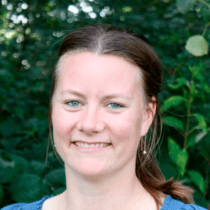InnoAddiction
Course
Join this module if you want to be able to solve a dilemma in the field of addiction care using innovative methods.
Possible Combinations
Students can combine InnoAddiction with a traineeship of variable time duration (only for students from partner institutions).
Target Group
The three-week course InnoAddiction is an offer for health education students from abroad and Danish students.
Purpose
The purpose of the short course is that the students:
- Develop innovative and entrepreneurial competences and skills.
- Learn to be a part of an international and interprofessional collaboration and reflect upon their own role in this collaboration.
- Can solve a dilemma in the field of addiction care using innovative methods.
Proof of English proficiency
All applicants for this offer must show proof of English language proficiency corresponding to a minimum of B2 on the CEFR scale. This can be done by submitting one of the accepted language certificates through the application form.
The accepted certificates and minimum requirements are:
- IELTS: Minimum score: 6.5
- TOEFL internet-based test: Minimum score: 94 (for tests taken before 21st January 2026) or 4.5 (for tests taken after 21st January 2026)
- Cambridge ESOL examinations: Advanced/CAE or Proficiency/CPE - Grade: C, B or A
- Cambridge ESOL examinations First Certificate: Grade: A
- Oxford Online Placement test: Minimum score: 75 overall + 75 in each subtest
The submitted certificates must not be older than 3 years to be considered valid.
If the applicant does not upload an English test, they will automatically be invited to complete an online test issued by UCL. Applicants may also be invited for an online interview upon our request.
Teaching Methods
All teaching and counselling, both oral and written, is conducted in English. Several teaching methods will be applied such as lectures, presentations, workshops, field visit, dialogue, and exchange of experiences, project work and independent studies.
Conditions
In order to complete the module and obtain a certificate, the student has to:
- English: Level B2 is required to be accepted to the course.
- The student has to have completed at least 1 year at a health or a social work programme in the home country prior to coming to UCL University College
- The student has to be enrolled at a higher education institution with which UCL University College has a bilateral agreement.
- The student must participate actively in the course during all 3 weeks.
Tuition Fee
Not applicable for EU/EEA-students and exchange students from partner institutions, all other students must pay. In this case, please send an e-mail to international@ucl.dk to learn more.
The three-week course is scheduled as a process with the students working in an interprofessional and international project group with a particular focus on innovation and entrepreneurship.
The students will explore a possible solution to a real-life challenge within the area of addiction. They work with innovative methods in interprofessional teams.
Week 1: Understand and Define the Problem
- Introduction and start up in project groups.
- Gather information and collect relevant data about the challenge
- Introducing innovative methods
Week 2: Idea Generation
- Generate, develop and choose ideas for a possible solution
Week 3: Prototype and Presentation
- Develop a model or a concept for the identified solution
- Presentation and evaluation
ECTS
5
Workload
Full time study
Learning Outcome
Knowledge
- Explain challenges for the citizen or patient, related to the society they live in
- Explain how the health care professions might enter into interdisciplinary contexts
- Describe creative and innovative working methods
- Explain challenges for the patient or citizen related to problems with addiction or abuse
Skills
- Discuss and distinguish among the different healthcare professions’ competences and fields, both in a national and international context.
- Prepare innovation projects and disseminate the results within various professions
- Examine challenges related to patient and/or citizen processes by working creatively and cooperating internationally and profession oriented
- Examine, disseminate and apply national and international literature and other scientific materials related to the innovation project
- Use critical thinking in terms of the cooperation, the process and the product
- Communicate, listen, analyse and interact with others
Competencies
- Enter into the different healthcare professions and international cooperation respecting own and other healthcare professions’ fields striving for the optimal solutions within the fields of addiction and abuse.
- Coordinate and manage tasks and cooperation across healthcare professions, sectors, projects and organizational contexts
- Develop and facilitate networks in an international- and across professional context
- Develop creative solutions to real-life challenges in practice, presupposing and challenging cooperation across professions
The student must participate actively during the course. Every project group must hand in assignments during the course.
The course will be completed by a poster presentation.
The course participant will be assessed by the lecturer as either passed or failed. If the course is not approved, the student must hand in a supplementary assignment proving to have met the expected learning outcomes.
